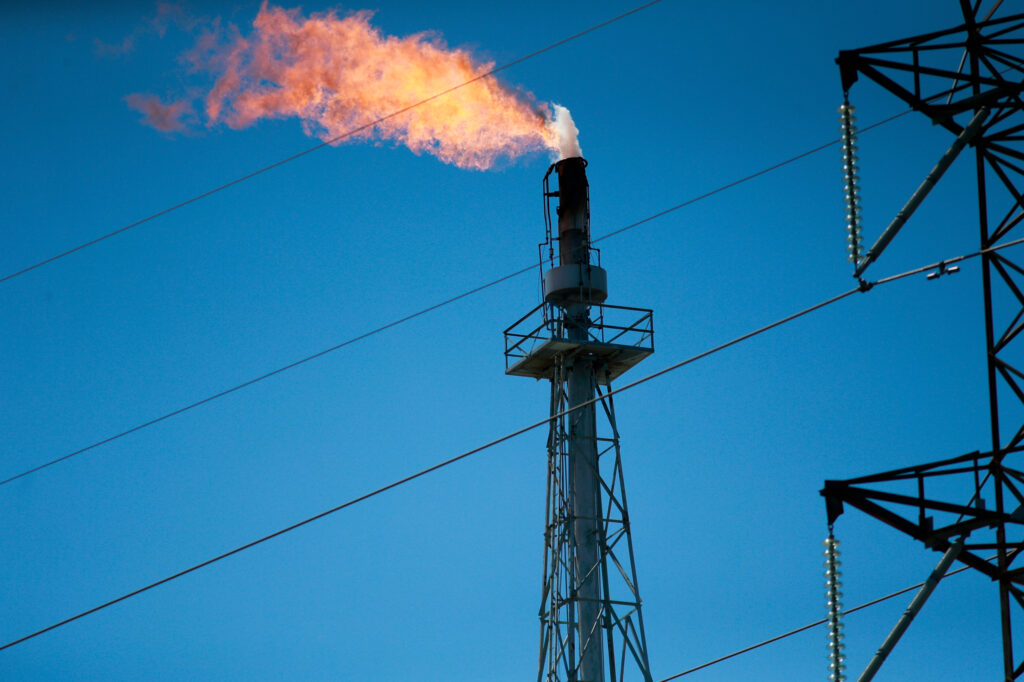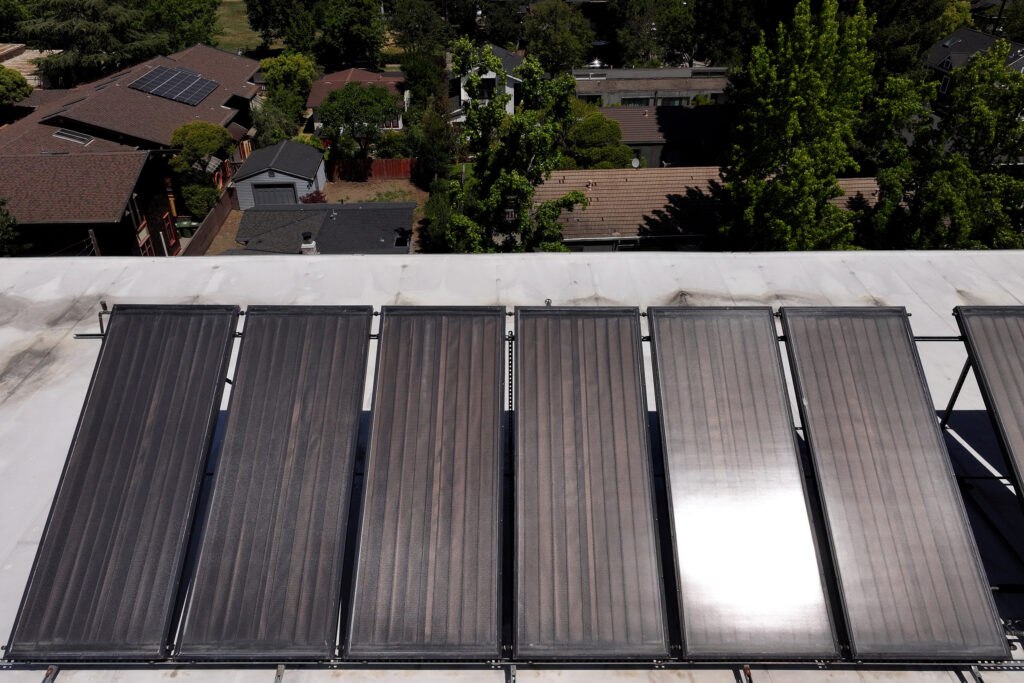Just about every state does poorly in the Institute for Local Self-Reliance’s annual Community Power Scorecard, and that’s part of the point.
With few exceptions, states are terrible when it comes to giving people control over their energy systems and limiting the harm done by monopolistic utilities, said John Farrell, co-director of the institute.
“I like to think of this as an aspirational kind of project to say to people, ‘There’s a lot of work that we need to do here,’” he said about the report released last week.
Illinois again ranked highest, receiving a B grade thanks to consumer-friendly rules for owning rooftop solar, plentiful opportunities for subscription-based community solar and many other rules and laws that give people choices on their energy use. No state got an A.
We’re hiring!
Please take a look at the new openings in our newsroom.
See jobs
“Illinois scores well across most of the elements in the scorecard,” Farrell said. “All of these policies sort of create an environment to allow widespread ownership and development of clean energy at the local level. Illinois checks the boxes on those, and they do really well.”
Oregon received the second-highest score and was one of 12 states receiving Cs. Fourteen states got Ds and the remaining 23 got Fs.
Alabama ranks last, with South Dakota only a little bit better.
The Institute for Local Self-Reliance advocates for locally owned energy systems, community choices on energy, and protection from being financially abused by utility companies. It has offices in Minneapolis, where Farrell is based, Portland, Maine, and Washington, D.C.
The scorecard, which had its first edition in 2018, shows the sum of results in 18 categories.

The categories have different weights. One that has a big effect on the overall score is net metering, which refers to state laws or rules for compensating rooftop solar owners for excess electricity they send back to the grid. Eight states (Delaware, Maryland, Minnesota, New Hampshire, New Jersey, New York, Oregon and Virginia) and the District of Columbia received the highest scores on that metric. South Dakota was lowest.
In some categories, the authors can give a negative score if the effect of a state law or rule is worse than doing nothing.
The main caveat is that the scores are based on the laws and rules themselves, and not on implementation. This helps to explain why Illinois, with its history of ambitious laws that sometimes have had lackluster implementation, does so well, as I’ve written about in partnership with Brett Chase at the Chicago Sun-Times.
Since last year’s report, Iowa, Michigan and South Carolina improved, while Missouri lost ground.
“There wasn’t any huge jump,” Farrell said. “It was more changes around the margin. Some states made incremental improvement, but then it wasn’t enough to change their grade.”
I asked Farrell how he’s feeling about the national energy policy landscape under President Donald Trump.
“There are a lot of interesting opportunities,” he said.
One thing that gives him hope is the Federal Trade Commission’s affirmation that it will keep the corporate merger rules that were adopted under former President Joe Biden.
“That says they’re still concerned about monopoly power in the economy, and a lot of the affordability issues around clean energy are tied up in that monopoly power issue,” Farrell said.
This story is funded by readers like you.
Our nonprofit newsroom provides award-winning climate coverage free of charge and advertising. We rely on donations from readers like you to keep going. Please donate now to support our work.
Donate Now
But the things that give him hope often get lost in the many reasons to be concerned.
“Some of [Trump’s agenda] is not really driven by any particular principle, or any conservative or liberal interpretation of the law,” he said. “It’s about, how are we making a statement to our followers about loving coal energy as a sort of symbolic gesture to making America great again. That has very little to do with energy, resilience, affordability, reliability, etcetera.”
He has concerns about the Trump administration’s deletions of climate data that had been accessible to the public, and hopes that this will not extend to Energy Information Administration data that remains available. He views this data as essential for having the transparency needed to hold utilities accountable.
His other big concern is that federal payments will be delayed or halted based on how the administration feels about the recipient.
“Is South Carolina going to get all this IRA money, but California is not?” he asked. “I think it’s possible they could try to do that. It may still be illegal, but we are already seeing evidence that they’re sometimes ignoring court orders. So, you know, we’re in a constitutional crisis there.”
Other stories about the energy transition to take note of this week:
BP to Slash Spending on Renewables and Focus on Oil and Gas: BP has announced plans to increase its spending on oil and gas projects and reduce spending on renewable energy, as Sam Meredith reports for CNBC. This reset of the company’s strategy is part of an attempt to focus on investments with the highest returns, said CEO Murray Auchincloss. BP has been a significant player in renewable energy development, but has reduced its emphasis on this part of its business in recent years.
Solar Power Tries to Avoid Trump’s Culture Wars: Solar power companies are trying to argue that they are part of Trump’s “energy dominance” agenda, rather than marginalized by it, as Kate Yoder reports for Grist. For example, the Solar Energy Industries Association has a new slogan: “American Energy DOMINANCE.” From trade groups to developers, the message is that solar is essential for the U.S. economy and an important part of a portfolio of electricity sources.
Texas Is Pursuing Early Deployments of Next-Generation Nuclear Reactors: Texas wants to welcome companies developing nuclear power plants, as my colleague Dylan Baddour reports. This includes Natura Resources in Abilene, which is working on a 1-megawatt reactor beneath a newly built lab at Abilene Christian University. The state is aiming to diversify its energy sources and maintain its status as a leader in a variety of energy technologies.
There Are Ways to Meet Data Center Demand That Are Clean and Cheap: Electricity demand from AI data centers can be met without a building boom on fossil fuel power plants, as Jeff St. John reports for Canary Media. He explains how renewable energy sources can be built to meet this demand, and done so in ways that are inexpensive and can be deployed more quickly than other options. This piece is part of a four-story series that explores the challenges and opportunities of data center growth.
Road Testing Has Started for Mercedes Solid-State Battery: Mercedes-Benz says it has begun road tests on a version of the EQS luxury sedan with a solid-state battery, an indication that this battery is getting closer to market, as Suvrat Kothari reports for InsideEVs.com. Mercedes and its battery partner, Factorial Energy, say this is the first solid-state battery from a major auto manufacturer, but it will still be several years until the battery is available at dealerships. This technology, which uses a solid electrolyte instead of a liquid or gel, has a high energy density which leads to longer range and other benefits. Mercedes says it expects this model to have a range of 620 miles.
Inside Clean Energy is ICN’s weekly bulletin of news and analysis about the energy transition. Send news tips and questions to [email protected].
About This Story
Perhaps you noticed: This story, like all the news we publish, is free to read. That’s because Inside Climate News is a 501c3 nonprofit organization. We do not charge a subscription fee, lock our news behind a paywall, or clutter our website with ads. We make our news on climate and the environment freely available to you and anyone who wants it.
That’s not all. We also share our news for free with scores of other media organizations around the country. Many of them can’t afford to do environmental journalism of their own. We’ve built bureaus from coast to coast to report local stories, collaborate with local newsrooms and co-publish articles so that this vital work is shared as widely as possible.
Two of us launched ICN in 2007. Six years later we earned a Pulitzer Prize for National Reporting, and now we run the oldest and largest dedicated climate newsroom in the nation. We tell the story in all its complexity. We hold polluters accountable. We expose environmental injustice. We debunk misinformation. We scrutinize solutions and inspire action.
Donations from readers like you fund every aspect of what we do. If you don’t already, will you support our ongoing work, our reporting on the biggest crisis facing our planet, and help us reach even more readers in more places?
Please take a moment to make a tax-deductible donation. Every one of them makes a difference.
Thank you,

















